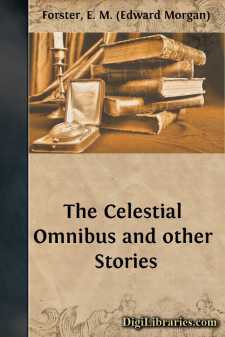Categories
- Antiques & Collectibles 13
- Architecture 36
- Art 48
- Bibles 22
- Biography & Autobiography 813
- Body, Mind & Spirit 142
- Business & Economics 28
- Children's Books 14
- Children's Fiction 11
- Computers 4
- Cooking 94
- Crafts & Hobbies 4
- Drama 346
- Education 46
- Family & Relationships 57
- Fiction 11829
- Games 19
- Gardening 17
- Health & Fitness 34
- History 1377
- House & Home 1
- Humor 147
- Juvenile Fiction 1873
- Juvenile Nonfiction 202
- Language Arts & Disciplines 88
- Law 16
- Literary Collections 686
- Literary Criticism 179
- Mathematics 13
- Medical 41
- Music 40
- Nature 179
- Non-Classifiable 1768
- Performing Arts 7
- Periodicals 1453
- Philosophy 64
- Photography 2
- Poetry 896
- Political Science 203
- Psychology 42
- Reference 154
- Religion 513
- Science 126
- Self-Help 84
- Social Science 81
- Sports & Recreation 34
- Study Aids 3
- Technology & Engineering 59
- Transportation 23
- Travel 463
- True Crime 29
Where Angels Fear to Tread
Description:
Excerpt
Chapter 1
They were all at Charing Cross to see Lilia off—Philip, Harriet, Irma, Mrs. Herriton herself. Even Mrs. Theobald, squired by Mr. Kingcroft, had braved the journey from Yorkshire to bid her only daughter good-bye. Miss Abbott was likewise attended by numerous relatives, and the sight of so many people talking at once and saying such different things caused Lilia to break into ungovernable peals of laughter.
"Quite an ovation," she cried, sprawling out of her first-class carriage. "They'll take us for royalty. Oh, Mr. Kingcroft, get us foot-warmers."
The good-natured young man hurried away, and Philip, taking his place, flooded her with a final stream of advice and injunctions—where to stop, how to learn Italian, when to use mosquito-nets, what pictures to look at. "Remember," he concluded, "that it is only by going off the track that you get to know the country. See the little towns—Gubbio, Pienza, Cortona, San Gemignano, Monteriano. And don't, let me beg you, go with that awful tourist idea that Italy's only a museum of antiquities and art. Love and understand the Italians, for the people are more marvellous than the land."
"How I wish you were coming, Philip," she said, flattered at the unwonted notice her brother-in-law was giving her.
"I wish I were." He could have managed it without great difficulty, for his career at the Bar was not so intense as to prevent occasional holidays. But his family disliked his continual visits to the Continent, and he himself often found pleasure in the idea that he was too busy to leave town.
"Good-bye, dear every one. What a whirl!" She caught sight of her little daughter Irma, and felt that a touch of maternal solemnity was required. "Good-bye, darling. Mind you're always good, and do what Granny tells you."
She referred not to her own mother, but to her mother-in-law, Mrs. Herriton, who hated the title of Granny.
Irma lifted a serious face to be kissed, and said cautiously, "I'll do my best."
"She is sure to be good," said Mrs. Herriton, who was standing pensively a little out of the hubbub. But Lilia was already calling to Miss Abbott, a tall, grave, rather nice-looking young lady who was conducting her adieus in a more decorous manner on the platform.
"Caroline, my Caroline! Jump in, or your chaperon will go off without you."
And Philip, whom the idea of Italy always intoxicated, had started again, telling her of the supreme moments of her coming journey—the Campanile of Airolo, which would burst on her when she emerged from the St. Gothard tunnel, presaging the future; the view of the Ticino and Lago Maggiore as the train climbed the slopes of Monte Cenere; the view of Lugano, the view of Como—Italy gathering thick around her now—the arrival at her first resting-place, when, after long driving through dark and dirty streets, she should at last behold, amid the roar of trams and the glare of arc lamps, the buttresses of the cathedral of Milan.
"Handkerchiefs and collars," screamed Harriet, "in my inlaid box!...






